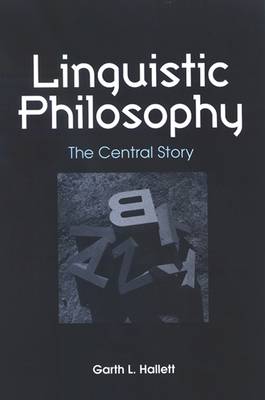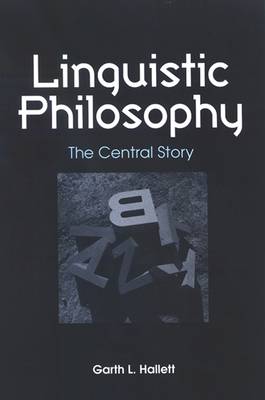
- Afhalen na 1 uur in een winkel met voorraad
- Gratis thuislevering in België vanaf € 30
- Ruim aanbod met 7 miljoen producten
- Afhalen na 1 uur in een winkel met voorraad
- Gratis thuislevering in België vanaf € 30
- Ruim aanbod met 7 miljoen producten
Omschrijving
Explores the role language plays in the relationship between reality and utterance.
How much authority should language, the medium of communication, be accorded as a determinant of truth and therefore of what we say? Garth L. Hallett argues that, although never explicitly debated, this is the most significant issue of linguistic philosophy. Here, for the first time, he traces the issue's story. Starting with representative thinkers-Plato, Aquinas, Kant, Frege, and the early Wittgenstein-who contested language's authority, the narrative then focuses on thinkers such as Carnap, Tarski, the later Wittgenstein, Flew, Russell, Malcolm, Austin, Kripke, Putnam, Strawson, Quine, and Habermas who, in different ways and to varying degrees, accorded language more authority. Implicit in this account is a challenge to philosophy as still widely practiced.
Specificaties
Betrokkenen
- Auteur(s):
- Uitgeverij:
Inhoud
- Aantal bladzijden:
- 243
- Taal:
- Engels
- Reeks:
Eigenschappen
- Productcode (EAN):
- 9780791473627
- Verschijningsdatum:
- 6/03/2008
- Uitvoering:
- Paperback
- Formaat:
- Trade paperback (VS)
- Afmetingen:
- 161 mm x 223 mm
- Gewicht:
- 335 g

Alleen bij Standaard Boekhandel
Beoordelingen
We publiceren alleen reviews die voldoen aan de voorwaarden voor reviews. Bekijk onze voorwaarden voor reviews.











